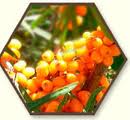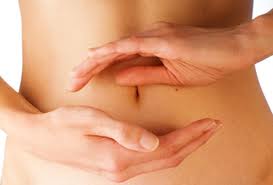 Vaginal yeast infection is one of the most common reasons why women consult a healthcare professional. Many women suffer from repeated infections. If a woman has been previously diagnosed with a vaginal yeast infection and has recurring symptoms, then treatment with Sea Buckthorn could be an option that may help avoid future infections.
Vaginal yeast infection is one of the most common reasons why women consult a healthcare professional. Many women suffer from repeated infections. If a woman has been previously diagnosed with a vaginal yeast infection and has recurring symptoms, then treatment with Sea Buckthorn could be an option that may help avoid future infections.
Yeast Infections may result from an overgrowth of Candida Albicans fungus in the genital tract. Candida Albicans is a widespread organism that normally lives in healthy balance in the body, found in the vagina, mouth, digestive tract and on the skin without causing disease or symptoms.
![17139_17839_5[1]](https://www.seabuckthorninsider.com/wp-content/uploads/2012/03/17139_17839_51-300x240.jpg) Vaginitis or genital candidiasis becomes problematic when the growth of yeast is excessive and not controlled by the body’s normal bacterial flora. This happens when the vagina has certain conditions that allow overgrowth and nourishment of Candida Albicans. The number of vaginal yeast infections is on the rise due to the increased use of antibiotics and oral contraceptives. In the case of antibiotics, they change the normal balance between organisms in the genital tract by suppressing the growth of protective bacteria that normally have an antifungal effect. It’s very common for women to develop an infection after a course of antibiotics. Other predisposing factors that can lead to a vaginal yeast infection include diabetes, HIV, pregnancy, frequent douching, menstruation and use of immunosuppressive drugs.
Vaginitis or genital candidiasis becomes problematic when the growth of yeast is excessive and not controlled by the body’s normal bacterial flora. This happens when the vagina has certain conditions that allow overgrowth and nourishment of Candida Albicans. The number of vaginal yeast infections is on the rise due to the increased use of antibiotics and oral contraceptives. In the case of antibiotics, they change the normal balance between organisms in the genital tract by suppressing the growth of protective bacteria that normally have an antifungal effect. It’s very common for women to develop an infection after a course of antibiotics. Other predisposing factors that can lead to a vaginal yeast infection include diabetes, HIV, pregnancy, frequent douching, menstruation and use of immunosuppressive drugs.
Preparations from the fruit, seeds, leaves and bark of Sea Buckthorn have demonstrated great promise in the treatment of the mucous membranes including ulcers and gastro-intestinal disorders as well as vaginal problems. Clinical and experimental investigations have shown multiple beneficial effects of the oils on skin and mucous membranes (Figure 1). Promoting tissue regeneration, improving immune function, reducing lipid peroxidation and inflammation are clearly the fundamentals of these effects. Read more on how sea buckthorn improves tissue regeneration here.

In a placebo-controlled double-blind crossover study, 24 female patients took Sea Buckthorn oil in a vegetable based capsule manufactured by supercritical CO2* extraction technology. Coconut oil was used as a placebo. Each product was taken for three months. The conditions of mucosa of the genital tract and the skin were evaluated using a visual analogue scale before and after each of the supplementation periods. A higher percentage of patients had the condition of genital mucosa improved by Sea Buckthorn than the placebo.
Natural anti-fungal herbal yeast infection remedies taken orally such as Sea Buckthorn oil or capsules are very useful in the treatment of candida infection because they can enter the blood stream where probiotics such as yogurt cannot. This helps with chronic and systemic fungus infection treatment immensely, especially if the fungus has penetrated the lining of the intestines and has traveled throughout the body. Probiotics can only kill the yeast infection in the intestines, mouth, and vagina. Sea Buckthorn is known to balance PH as well as protects the mucous linings of the body, the place yeast likes to attack.
Palmitoleic acid (Omega-7), a major component of Sea Buckthorn oil, is found in  our skin’s essential fatty acid profile and is a building block to prevent burns, wounds, and skin scratches as well as the most active anti-microbial in our sebum. It can be used on our skin to treat damaged skin and annoyed mucous membranes. Studies have shown it can prevent adhesion of Candida Albicans to pig skin, and one study showed it had the same effect on babies’ bottoms! Read more about sea buckthorn’s impressive palmitoleic acid (Omega-7) content here.
our skin’s essential fatty acid profile and is a building block to prevent burns, wounds, and skin scratches as well as the most active anti-microbial in our sebum. It can be used on our skin to treat damaged skin and annoyed mucous membranes. Studies have shown it can prevent adhesion of Candida Albicans to pig skin, and one study showed it had the same effect on babies’ bottoms! Read more about sea buckthorn’s impressive palmitoleic acid (Omega-7) content here.
Sea Buckthorn provides comprehensive nutrients and has multi-effects on the endocrine, circulation, nervous, immune and reproductive systems by regulating and coordinating them. It also has antibacterial, antifungal, anti-infection and anti-inflammation properties and both internal and external use can be effective for menstruation pain, cervical erosion, cervicitis and vaginitis, and is very helpful to facilitate midlife changes.
Reference:
Risto, Erkkola and Baoru, Yang, Sea buckthorn oils: Towards healthy mucous membranes. AGROFood industry hi-tech May/June 2003.
Larmo P, Alin J, Salminen E, Kallio H & Tahvonen R (2008) Effects of Sea Buckthorn berries on infections and inflammation: a double-blind, randomized, placebo-controlled trial. Eur J Clin Nutr 62, 1123-1130


When I took sea buckthorn as a supplement for a few months, my throat became very itchy. Also, my husband complained about the bad breath and smell from the oil. I stopped taking it altogether 6 years ago.
Anyone experience the same or similar things? Now that I am suffering from chronic thrush on candida growth, I have read in the internet that it is more effective than coconut oil in killing the fungus! If it is so effective, I must give it a go. Any experience on using both of them?
I also read about flax seeds being good for killing candida.
There is plenty of information around the internet indicating women have had great success with sea buckthorn oil to fight yeast infections! As answered in another thread, we have not heard of bad ‘sea buckthorn’ breath or burps before. This is very common with fish oil though.
When I take sea buckthorn supplement, I got some symptoms like itchy body, bad breath which is not from the sea buckthorn itself but from my inner body, and less loose stool.
How about applying oil directly on an area of the skin, in case of a yeast infection? Would that also be effective?
Hi There!
We have heard of people applying sea buckthorn directly to the skin or other effected areas with great results. It’s always smart to check with your doctor or health practitioner first if you are unsure!
Thanks for your question.